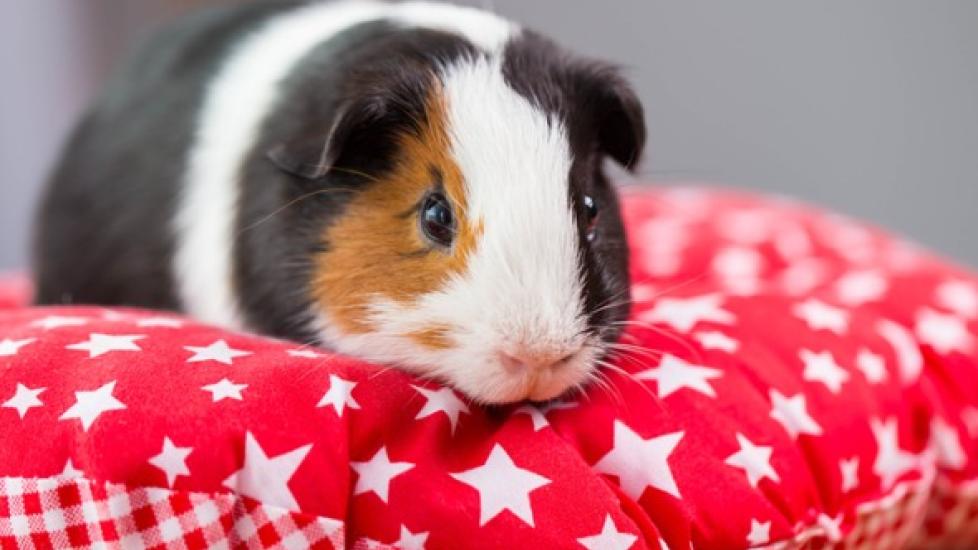Viral Pneumonia in Guinea Pigs
Adenovirus Infection in Guinea Pigs
Guinea pigs are prone to infection with a specific type of adenovirus, the guinea pig adenovirus (GPAdV), which may cause respiratory symptoms. This occurs more often in guinea pigs that are young or old (due to underdeveloped or weakened immune systems, respectively), or those that have immune systems that are not working properly. There are even guinea pigs which have GPAdV that are only carriers of the virus and display no signs of the illness whatsoever.
Guinea pigs do not typically die from GPAdV, but unfortunately, those that do die often die suddenly without seeming to have been sick.
Symptoms and Types
An asymptomatic infection -- or an infection in which the guinea pig does not display any symptoms -- is the most common type associated with guinea pigs. In fact, rarely does it progress to respiratory infection and pneumonia. The period of incubation lasts from 5-10 days, with a subsequent period of shedding of the virus from 10-12 days. Then, depending on whether the animal is asymptomatic or not, you may observe:
- Fever
- Depression or dull demeanor
- Loss of appetite and weight loss
- Respiratory distress (dyspnea)
- Crackling sound when breathing due to congestion (rales)
- Nasal discharge
Recommended Products
Causes
GPAdV is transmitted between guinea pigs in several ways, including direct contact with an infected guinea pig that is sneezing or coughing. Contaminated feces and urine may or may not play a role; it is, however, best to take precautionary measures with all body fluids. Risk factors include immune deficiencies and age, whereby old and young guinea pigs are most prone to the virus.
Diagnosis
Your veterinarian might suspect an adenovirus infection by observing the symptoms exhibited by the infected guinea pig. A confirmatory diagnosis will require advanced laboratory tests on blood samples collected from the infected guinea pigs. The ELISA test is currently regarded as the most reliable test for diagnosing the GPAdV infection.
Treatment
Treatment is very costly and usually not practical when dealing with viral diseases such as GPAdV infection; the only treatment that is advised is given to help overcome the symptoms. Your veterinarian may prescribe antibiotics, fluids, and supplementary therapy to treat adenovirus infection.
Living and Management
Your guinea pig will need plenty of rest in a calm and clean environment while it is recovering. Make sure that your pet guinea pig’s cage is thoroughly disinfected before reintroducing the guinea pig, and separate the recovering guinea pig from other animals to prevent the spread of infection.
Prevention
Respiratory infections like GPAdV infections in guinea pigs are highly contagious and are mainly transmitted through contact. In addition to the normal discharge of respiratory fluids, contaminated feces, urine, and bedding material are all suspect as well as should be cleaned away thoroughly to avoid contamination of healthy guinea pigs. Properly cleaning the cages, changing soiled bedding material routinely, and maintaining a hygienic living environment for your guinea pigs is essential to prevent this disease from occurring and/or spreading.
Featured Image: iStockPhoto.com/Arisara_Tongdonnoi
